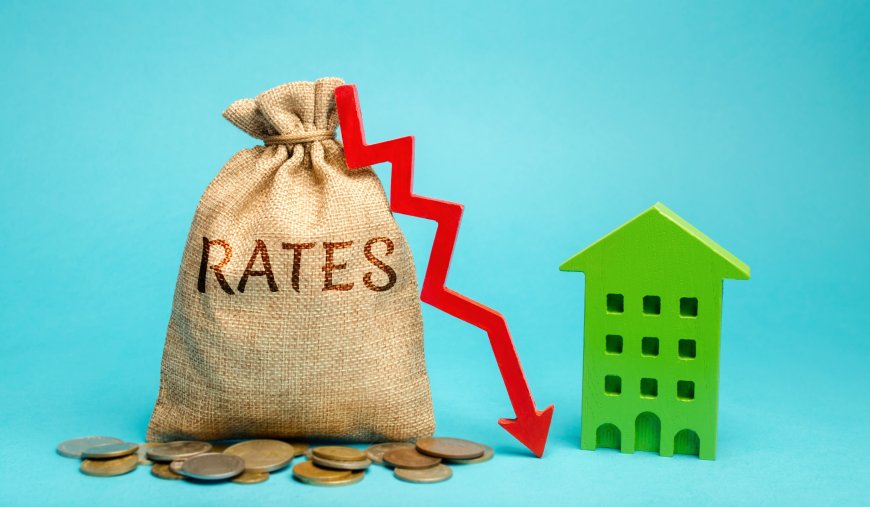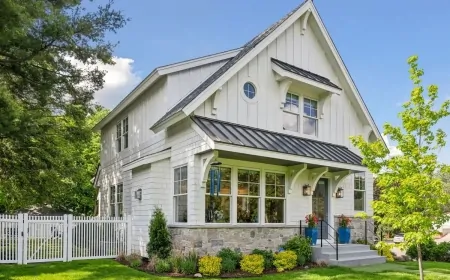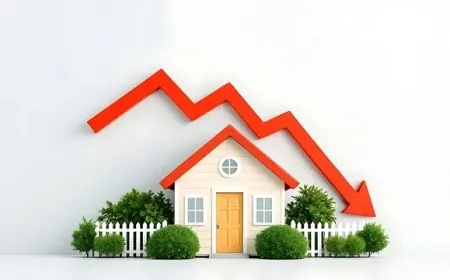Mortgage Rates Witness Initial Decline in Three Weeks, Offering Relief to Homebuyers
Mortgage rates experience a welcome decline after three weeks of increases, providing relief for homebuyers in a volatile housing market.

In a refreshing turn of events, mortgage rates have taken a downward trajectory this week, putting a halt to a three-week period of consecutive increases. This development comes amidst a landscape of conflicting economic indicators, adding an element of volatility to the mortgage market. The decline in rates offers some respite to potential homebuyers who have been grappling with affordability challenges. However, the housing market continues to face another significant obstacle - limited inventory. Let's delve deeper into the recent trends and their impact on the real estate landscape.
Mortgage Rates Show a Reversal:
According to the latest data released by Freddie Mac on Thursday, the average rate for a 30-year fixed-rate mortgage was recorded at 6.71% for the week ending June 8. This marks a decline from the previous week's rate of 6.79%. It is important to note that despite this decline, the current rate remains significantly higher than the 5.23% recorded a year ago. Nonetheless, the drop in rates offers a glimmer of hope for potential homebuyers who have been deterred by the high rates prevalent in recent times.
Inventory Remains a Major Challenge:
While the dip in mortgage rates provides some relief, prospective homebuyers continue to face the persistent issue of limited housing inventory. Current homeowners, who have enjoyed the benefits of historically low interest rates from their previous mortgages or refinancing, are understandably reluctant to sell their properties and enter into higher interest rate agreements. This reluctance has resulted in a scarcity of available homes for those looking to buy, adding to the challenges faced by aspiring homeowners in the current market.
Volatility Driven by Economic Uncertainty:
The fluctuations in mortgage rates can be attributed to the inherent volatility and uncertainty in the economy. Jiayi Xu, an economist at Realtor.com, highlights that daily changes in rates are influenced by the trend of 10-year Treasury yields. Investors closely monitor these indicators to evaluate the potential direction of the Federal Reserve's interest rate policy. Recent statements by Federal Reserve officials have hinted at the possibility of delaying a rate hike in June, indicating a cautious approach to gather more data before making decisions. The uncertainty surrounding these policy decisions and market reactions contribute to the fluctuating mortgage rates.
Impact on Homebuyers and the Housing Market:
The recent decline in mortgage rates has generated mixed reactions within the housing market. While it offers an opportunity for prospective buyers to secure financing at slightly lower rates, the impact on overall market activity remains to be seen. Mortgage applications have decreased in response to the recent rate spikes, according to the Mortgage Bankers Association. The slow start to the summer housing market can be attributed to higher mortgage rates, limited inventory, and economic uncertainties.
Looking Ahead:
While the recent decline in mortgage rates is a positive development for potential homebuyers, it will take a significant decrease in rates to encourage certain segments of the market to engage in property purchases. Affordability continues to be a crucial factor influencing the decisions of homebuyers. A recent survey conducted by Realtor.com and Censuswide revealed that a majority of respondents considered mortgage rates between 3% and 3.25% as comfortable, which is less than half of the current levels. Therefore, achieving stability in the housing market and fostering homeownership will heavily depend on factors such as affordability, adequate inventory, and market predictability.
Conclusion:
The recent decline in mortgage rates provides a temporary reprieve for homebuyers amidst a period of volatility in the housing market. However, the challenges posed by limited inventory and affordability concerns persist. As the economy continues to evolve and the Federal Reserve's interest rate decisions unfold, it remains to be seen how these factors will shape the future of the mortgage market and the aspirations of prospective homeowners.
Also Read: Surging Mortgage Rates Compound Housing Crisis, Posing Challenges for Home Buyers































































